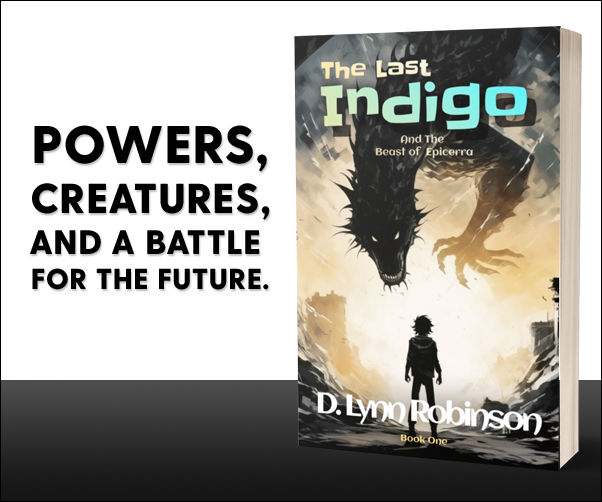Title Faking Normal
Author Courtney C. Stevens
Published February 25th, 2014 by HarperCollins Children’s Books
Pages 336 Pages
Intended Target Audience Young Adult
Genre & Keywords Contemporary, Realistic Fiction, Rape, Romance
Part of a Series? No
Source & Format Received an Advanced Reader Copy from the publisher for review (Thanks, HarperTeen!), eBook
Find It On Goodreads ● Amazon.com ● Chapters

Alexi Littrell hasn’t told anyone what happened to her over the summer. Ashamed and embarrassed, she hides in her closet and compulsively scratches the back of her neck, trying to make the outside hurt more than the inside does.
When Bodee Lennox, the quiet and awkward boy next door, comes to live with the Littrells, Alexi discovers an unlikely friend in “the Kool-Aid Kid,” who has secrets of his own. As they lean on each other for support, Alexi gives him the strength to deal with his past, and Bodee helps her find the courage to finally face the truth.

“But this’ll probably be what he goes back to. Mom. No Mom.
That’s a forever change. I never understood life could be so dramatically sectioned, but it can. There is only after. And before.
My moment was by the pool; Bodee’s is by the casket. Or wherever he was when he found out about his mom.”
For most people, life can be divided into distinguishable parts, like the recognizable beginning, middle, and end of a story or play. For sixteen-year-old Alexi Littrell and Bodee Lennox, however, there are only two distinctions: Before and After. Before, Alexi and Bodee were relative strangers, brought together only by locker proximity and coincidence, a world of differences between them. Before, Bodee was known more simply the ‘Kool-Aid Kid’, an unassuming oddball with technicolour hair who was the object of ridicule and scorn amongst his peers. Alexi was known more simply as a carbon copy of her elder sister, Kayla, a shy, ordinary teenage girl who liked spending time with her best friends, Heather and Liz. After, the two teenagers are dealing with psychological trauma far beyond their sixteen years. For Bodee, this means attempting to escape the violent legacy of his father, who murdered his mother in a devastating incident of domestic violence. For Alexi, this means dealing with the crippling aftermath of her rape and coinciding betrayal at the hands of someone she once trusted. When the Littrells welcome Bodee into their home, Alexi and Bodee form an unlikely bond despite their vastly different backgrounds and upbringings, their shared pain forging an indelible link between them. As the two teenagers attempt to seek closure and redefine themselves after all that has happened, Alexi and Bodee will ultimately find that there is no greater power than that of love and that there is light to be found at the end of even the darkest of tunnels.
“Knowing Bodee’s location is not my job, but somehow the silence we shared on the bench connected us, and I find myself wanting to know if he’s okay.
Or only pretending to be okay.
Bodee is really none of my business. But I did follow him out of the funeral. And as I ask myself why I did, or why I’m thinking about him now, I know the answer.
Because I’m pretending too.”
As in the case of Kathleen Hale’s No One Else Can Have You, I will preface this review by stating outright that I recognize that Faking Normal will not be the right book for everyone. Some will no doubt argue that Bodee plays too prominent a role in Alexi’s healing process or will be unsatisfied with the conclusion to Alexi’s journey, while others will simply not respond to Stevens’ rather unique narrative voice, as Jamie discussed in her own review of the novel. That said, Faking Normal spoke to me on a powerful elemental, emotional level and has become a favourite amongst the plethora of contemporary young adult novels I’ve read in the past few years. Before I go any further with this review, I would like to address a troubling dialogue I’ve seen in the wake of the publication of this novel. For better or worse, there has been greater attention paid to the concept of the ‘strong female character’ as of late, particularly in the young adult market. While I both welcome and applaud this emphasis on the role of women in fiction, I’ve grown concerned by the very narrow definition of what constitutes this much-sought-after character archetype. More often than not the definition of the ‘strong female character‘ includes the same four or five attributes, leaving very little room for delineation or difference. They are physically strong. Outspoken. Independent. Unemotional. And while there is nothing wrong with any of these individual traits or a celebration of this type of character, I’m concerned that by adhering to such a narrow definition of what constitutes a ‘strong woman’, we are excluding or unconsciously looking down upon a large population of the gender we allegedly wish to empower and support. This cannot be done by invalidating someone else’s experience or choices simply because they does not match our own. Which brings us to the novel in question. One of the largest criticisms I’ve seen leveled at Faking Normal is that Alexi is a weak female character because she relies too heavily on Bodee’s help in order to move past the trauma of her assault. The two are not mutually exclusive. There is nothing shameful or wrong about asking for help or leaning on another in a time of trial. It does not make one ‘weak’ or ‘lesser than’. There is no victory in isolating oneself or suffering in silence. In fact, I would argue that there is a different, but no less important, kind of strength in allowing oneself to be vulnerable, to ask for and accept help from another person. In truth, this is a skill I have never mastered, which might explain why I responded to Alexi as strongly as I did. Her ability to eventually trust in Bodee and confide everything is something I still struggle to do on a daily basis, and I in no way felt this made her ‘weak’ or ‘dependent’, as I’ve seen other reviewers describe her. While I can understand if readers felt disappointed that the narrative did not focus as exclusively on Alexi’s story as they would have liked, I can’t help but grow frustrated when the majority of the criticism is couched in definitive statements about what does or does not constitute a ‘strong woman’. I would also argue that Alexi and Bodee’s relationship is reciprocal. While Bodee undoubtedly helps Alexi to work through and express her feelings about her rape and to confront her attacker, Alexi likewise provides Bodee with the support he needs to testify at the murder trial of his father. The two help one another, and in no way did I feel this relationship was one-sided.
“The problem is, I’m not angry at him. I’m not angry with my parents. Or Kayla. Or my friends. And it’s not the school’s fault.
It’s mine.
‘You’re the stupid idiot. You let him. You let him.’ Now my nails come out. Tearing the vulnerable skin on the back of my neck.
‘You let him.’ The scabs that needed a night to heal are under my nails again.
It doesn’t matter how hard I dig, the words keep going and going in my head.”
Where Stevens’ debut excels most is in its authentic, unflinching portrayal of Alexi’s trauma in the wake of her rape. The self recrimination. The guilt. The shame. The fear. Like many victims of sexual assault, Alexi internalizes the resulting pain of her attack and places the blame on herself as opposed to where it belongs, on her attacker. As a result, Alexi unconsciously creates a series of compulsions and ritualistic behaviors in order to cope with her feelings of anxiety, all the while attempting to maintain a facade of perfection and normalcy. Whether she was resorting to self-harm and scouring the back of her neck with her fingernails in order to create an outward manifestation of her pain or regressing back to a time when she felt safe and loved by retreating to her closet and surrounding herself with relics of her childhood, Stevens’ examination of Alexi’s psychological trauma was honest, thoughtful, and absolutely moving in its unwavering authenticity. The author also confronts the destructive and dangerous misconceptions inherent in rape culture, such as the fact that the absence of a vocalization of the word ‘no’ does not equate to consent and that guilt and contrition on the part of the rapist does not excuse or justify their behaviour. When Alexi attempts to reach out to others and confide in them, couching her rape in a hypothetical scenario, she is met with victim-blaming and slut-shaming attitudes that only cause her to further retreat within herself, underlining why so few victims of sexual assault feel safe and comfortable enough to report their attack to the authorities.
“Please, stop. Please, stop. Please. But thoughts are not words. He doesn’t stop.
…His hip bones dig into mine as all of his weight smashed my chest against his. My eyes are wide as peach-coloured skin and dirty-blonde hair blur into a claylike blob. It’s not crazy that I hate him and that stupid smile, but it might be insane that I hate myself more. Why can’t I rescue myself? Another girl would either do it and like it or tell him to keep his dick in his pants. I’m not either girl; I’m nothing.”
Another aspect of the story that I greatly enjoyed and that was entirely unexpected was the element of mystery that ran throughout the text. The identity of Alexi’s rapist remains unknown for the vast majority of the novel, and because the reader is aware that the attack was perpetrated by someone close to her, the reader is cast into the role of amateur detective as they attempt to ascertain who raped her. Not only does this help to dispel the dangerous myth that rapes are committed predominantly by strangers (in reality, 67% of sexual assaults are committed by someone known to the victim) but also significantly raised the tension in the novel. It seems perverse to imply that this mystery somehow made the novel more engaging or exciting, but I would be lying if I said that this element of the unknown regarding the rapist’s identity did not encourage me to read the novel at an accelerated rate. The reader feels an instinctive desire to protect Alexi, but because one doesn’t know from whom, it quickly becomes a desperate race to find out the identity of the rapist so that Alexi might receive the vindication and closure the novel has so masterfully been building toward. In short? I couldn’t put this novel down for an instant until it was over.
“Me: A girl who was raped. Him: A boy whose dad killed his mom.
Us: A girl and boy who survive.”
As I’ve already mentioned, the burgeoning relationship between Alexi and Bodee is one of the most predominant aspects of the novel. While I would ordinarily be one of the first to point out the implausibility of the two characters’ rapidity and depth of connection given their almost complete absence of interaction prior to the beginning of the novel, I felt that it made sense within the context of the story. Given the traumatic nature of their respective histories Alexi and Bodee are able to uniquely relate to one another and feel free to dispense with the superficial masks they are forced to don around others. Individually speaking, as a character, Bodee Lennox is something special. I can honestly say I’ve never encountered another character quite like him before or since. Immeasurably changed by the domestic violence he was forced to witness as a child, Bodee is an old soul, filled with an instinctual wisdom and kindness that makes him seem paradoxically both innocent and vulnerable and mature and hardened at the same time. I’ll be the first to admit that I’ve encountered my fair share of commanding, dominant Alpha male heroes that have made me weak in the knees, but there was something about Bodee’s unique brand of sensitivity that positively stole my heart. Bodee’s constant insistence on making sure that Alexi felt comfortable and safe, both in general and in regards to their ever-changing relationship (“May I kiss you?”) was one of the most romantic and beautiful things I’ve read in quite some time and is sure to make even the most hard-hearted, jaded reader swoon.
“Right now we’re both yard sales of emotions. A penny for pain. A dime for bitterness. A quarter for grief. A dollar for silence. It binds us together, but I don’t want him to pay the price for the parts of me that are used and broken.”
All that said, I did encounter a couple of issues which prevented me from awarding this novel a perfect five star rating. Although I warmed to it eventually, Courtney Stevens’ distinctive narrative voice is one which took me a little while to grow used to. It wasn’t until the 20% mark that I became accustomed to it and so engrossed in the story that the occasional awkward or discordant sentence ceased to matter. There were times when I found Stevens’ writing beautiful, even melodic, but there were others when it was a little too stylized and bordered on over-worked. While Faking Normal is undoubtedly an impressive undertaking, all the more so given that it’s the author’s literary debut, there was the odd moment when I felt the prose was heavy-handed and could have benefited from further editing or simplification.
Without delving into too much detail for fear of spoiling things, I was also disappointed by the lack of legal recourse taken by Alexi against her rapist and the troubling likelihood of his reoffending in the future as a result. While I was ultimately satisfied with the ending we were given and could rationally recognize how psychologically and symbolically appropriate his actual ‘punishment’ was in its imitation of Alexi’s sense of isolation and abandonment in the wake of her attack, I couldn’t help but wish for something more. Objectively I recognize that the scope of the novel no doubt prohibited the author from delving into this next stage of Alexi’s journey as deeply as she otherwise might have liked and that Faking Normal was never about punishing Alexi’s abuser, there was a certain lack of resolution that continued to plague me. I wanted a distinct sense of finality and justice, although I recognize that this likely says more about me than it does the novel in question.
“But today is better than yesterday. And this hurt is still a hole in me, but it’s a shrinking hole.”
A moving story about the resilience of the human spirit in the wake of unimaginable tragedy, Faking Normal is a poignant, thoughtful debut that is not to be missed by fans of realistic fiction and emotive writing. As was the case when I read and reviewed Leila Sales’ This Song Will Save Your Life, I was almost immediately struck by the importance of this work and the value it holds, not merely as a form of entertainment but as an educational tool as well. Stevens tackles the often dangerous and debilitating misconceptions inherent in rape culture and, most importantly of all, offers a voice to the victims who all too often are forced to remain silent. At times stark and heartbreaking at others romantic and heartwarming, Courtney C. Steven’s Faking Normal is ultimately an uplifting reflection on the power of love, faith, hope and forgiveness. As the author herself once said, “Pain is big. Hope is huge.” Amen, Courtney. Amen.
Please Note: All quotations included in this review have been taken from an advanced reader copy and therefore might be subject to change.

Overall Rating



Still not sure this is the right book for you? Why not listen to what some other bloggers had to say about it?
● Giselle @ Xpresso Reads wrote “Not only is this story incredibly well written and poignant, but it sheds some light on one of the most misunderstood and controversial of crimes.” (Read the rest of the review Here!)
● Jamie @ The Perpetual Page-Turner wrote “It just didn’t do anything for me and I felt more annoyed than not while reading. I was too often taken out of the reading experience to care.” (Read the rest of the review Here!)
● Hazel @ Stay Bookish wrote “I acknowledge that it’s a delicate story and not everyone’s going to understand. Even so, I found Faking Normal to be an incredibly powerful and moving debut.” (Read the rest of the review Here!)












4 Responses
What a fantastic review! And you told me you weren’t sure you could write it… 😉 I think you covered SO many bases and offered excellent insight for those who may be hesitant to pick up the book due to those who have argued against the topics within it. I love it, though, when books create conflicting opinions. That’s when you know that the author did something right.
I hope that people will be discussing Faking Normal for years to come.
(By the way! I was so happy to see your review posted this morning!)
Jenna recently posted…Book Review: After the End by Amy Plum
Can I just say how much I LOVE your review style Jen? You’re so eloquent and I love how deeply you go into each aspect of the book! 😀
Anyway, I’m so glad this worked for you as well! I can definitely see how there can be such conflicting thoughts with this one, but the depth to the story and the fact that it’s so powerful and moving is definitely a plus. The writing and characterization sound AWESOME as well!
Definitely adding this to my TBR list! Thanks so much for sharing, and, as always, brilliant review! xD
Zoe N. recently posted…Maybe One Day
I was really REALLY hoping to see a review of FAKING NORMAL that was celebrated like this, especially since I didn’t love it for a variety of reasons (most of which you mentioned).
“In fact, I would argue that there is a different, but no less important, kind of strength in allowing oneself to be vulnerable, to ask for and accept help from another person” – you nailed it. You definitely gave me a fresh perspective on this read and while it’s still not going to change my mind about my experience with my first read, it definitely gives me a new lens as I read books going forward.
Well done.
Lisa recently posted…An already outdated bookshelf tour!
I have several things to say right now.
First of all I very much so liked what you said about the narrowing definition of “strong women.” There is a quote that has been making the rounds on tumblr that I’d like to share with you : “Screw writing “strong” women. Write interesting women. Write well-rounded women. Write complicated women. Write a woman who kicks ass, write a woman who cowers in a corner. Write a woman who’s desperate for a husband. Write a woman who doesn’t need a man. Write women who cry, women who rant, women who are shy, women who don’t take no shit, women who need validation and women who don’t care what anybody thinks. THEY ARE ALL OKAY, and all those things could exist in THE SAME WOMAN. Women shouldn’t be valued because we are strong, or kick-ass, but because we are people. So don’t focus on writing characters who are strong. Write characters who are people.”
Everytime I see this quote I reblog it. Everyone has their own strengths. Just because one person cries and another forces their pain inside does not make one stronger than the other. It’s even arguable that the depth of the human experience is only understood by the individual who has lived it. Furthermore it means that we all have different stories and perspectives to bring to the table.
I really enjoyed your review and I really enjoy your blog. You are absolutely fantastic.
And I will be purchasing this after I finish blog hopping.
Rebecca @ Vicariously!
Rebecca recently posted…Waiting on Wednesday